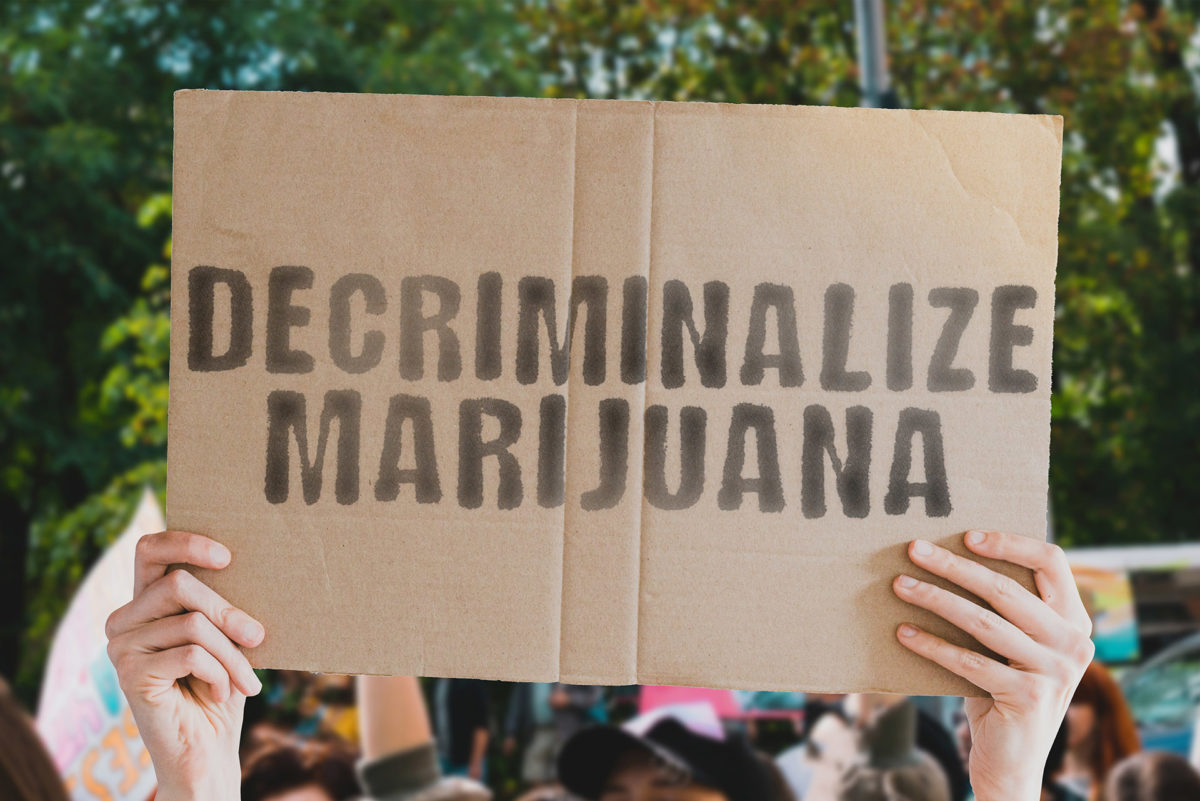Brittney Griner and the Criminalization of Weed

Just a week before the widely publicized invasion of Ukraine, an American basketball player was detained in Russia for having vape cartridges containing cannabis oil in her luggage. Her name is Brittney Griner. Last week Brittney Griner was convicted on a charge of attempting to smuggle narcotics into Russia, based on two vape cartridges containing hashish oil that were found in her luggage at a Moscow airport in February. She was sentenced to nine years in a penal colony, the New York Times reported. Brittney’s story highlights not only the incessant criminalization of weed, but also the need for cannabis criminal justice reform both at home and abroad.
Who is Brittney Griner?
If you weren’t a fan of the WNBA (Women’s National Basketball Association), you may have only heard Brittney Griner’s name for the first time after her arrest in Moscow’s Sheremetyevo Airport earlier this year. Google Analytics supports this presumption by the steadily increasing search traffic of her name since her February arrest. Many of us were eager to learn more about the 6-foot-9-inch basketball star.
Brittney is a two-time olympic champion and leading player for the WNBA team, Phoenix Mercury. During her college days, Brittney played Division 1 basketball in the NCAA for Baylor University’s Lady Bears. While there, she scored 2,000 points and blocked 500 shots, something no Division 1 basketball player had ever done before — not in men’s or women’s basketball.
Since college, Brittney has won numerous awards including the WNBA Championship in 2014, a WNBA Scoring Champion in 2017 and 2019, plus two gold medals with the USA Team at the 2016 Olympics and the 2020 Olympics. Brittney is also a queer person-of-color, medicinal cannabis patient, and what many are calling a political prisoner.
What Happened in Russia?
On Feb. 17, 2022, Brittney Griner, an American basketball star, was arrested after customs officials found cannabis oil cartridges in her luggage when she was returning to Russia to play for UMMC Ekaterinburg, a team in the Russian Premier League. Griner supplements her income by playing for the Russian Premier League before her U.S. season resumes, a common practice for players who can earn much higher salaries in foreign leagues than on WNBA teams.
On July 7, Griner addressed the Russian court by testifying that she would “like to plead guilty, your honor. But there was no intent. I didn’t want to break the law.” Her attorney’s have presented Brittney’s physician recommendation to prove that the state of Arizona, where Griner lives with her wife, has approved her use of medicinal cannabis for chronic pain due to years of playing professional basketball.
The Need for Cannabis Criminal Justice Reform
While the legal cannabis industry is booming, an estimated 40,000 people are incarcerated for cannabis offenses in the United States. With many Americans consuming, selling and basking in the culture of legal weed, that’s 40,000 too many. The criminalization of weed has a long history here in the United States, so even as legalization spreads across the country, there is still so much work to be done for cannabis criminal justice reform and organizations that help prisoners.
Organizations that Help Prisoners
Those incarcerated for cannabis offenses are no stranger to the need for cannabis criminal justice reform, but those who aren’t behind bars may not understand the severity and urgency of this social justice issue. Below are organizations that help prisoners and highlight the need for cannabis criminal justice reform.
The Last Prisoner Project is a non-profit organization dedicated to cannabis criminal justice reform. Through legal intervention, public education and legislative policy, LPP works to redress the past and continuing harms of the War on Drugs.
The ACLU works in courts, legislatures and communities to defend and preserve the individual rights and liberties that the Constitution and the laws of the United States guarantee everyone in this country.
The Social Impact Center leads the Los Angeles National Expungement Week efforts. N.E.W. provides year-long coordinated relief clinics, discussions and healing sessions that provide relief, equity and opportunity in communities historically and currently impacted by the War on Drugs. N.E.W. also organizes an annual national week of action.
What You Can Do
Sadly, Brittney isn’t the only American citizen detained in a Russian jail for a weed conviction. In August of last year, Marc Fogel, then 60, was arrested at the same airport in Moscow when half an ounce of weed was discovered in his luggage. Fogel was also approved by a U.S. doctor for medical cannabis, but like Griner, the physician’s approval was not recognized by the Russian government. He was sentenced to 14 years for his offense. By educating yourself and supporting the above mentioned organizations, you can do your part in ending the criminalization of weed.
CannaCon is the nation’s leading business-to-business cannabis conference. We’re growing the cannabis industry by educating cannabis business owners on all things related to cannabis and CBD. CannaCon trade shows feature a large exhibition hall with exhibitors from around the country as well as seminars delivered by industry experts. Register to attend a cannabis conference near you.
